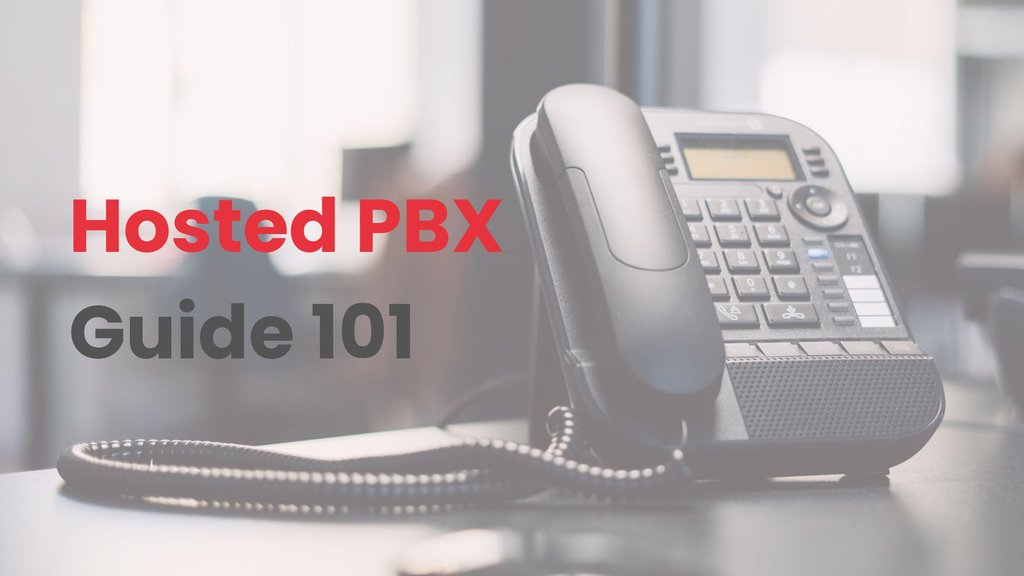
What is Hosted PBX?
Are you tired of handling many phone lines and striving to efficiently manage your team's communications? Hosted PBX provides a versatile, scalable, and cost-effective alternative for connecting your remote workers and streamlining communication operations.
Hosted PBXs, or Private Branch Exchanges, are cloud-based phone systems that enable businesses of all sizes, especially remote teams, to handle their calls and communications without requiring their own hardware. A third-party supplier hosts the system and handles all technical aspects, allowing businesses to employ advanced phone services via the internet via VoIP. This is an excellent choice for people seeking a more adaptable, modern and cost-effective phone solution.
Understanding Hosted PBX
Traditional PBXs function similarly to a physical phone system in the business. You must acquire the equipment, install it, and have IT professionals administer it. This can be costly and time consuming.
In contrast, hosted PBXs are similar to renting a phone system from a corporation. They are cloud-based, which means that the equipment and software are hosted on remote servers. A service provider manages all technical aspects, from upgrades to maintenance. Businesses benefit greatly from this because they no longer have to manage their own phone system.
How Does Hosted PBX Work?
Hosted PBX solutions rely on two main technologies: cloud-based infrastructure and Voice over Internet Protocol (VoIP).
Cloud-Based Infrastructure: The PBX software and hardware are hosted at a service provider's data center. This eliminates the need for enterprises to invest in and maintain their own physical equipment. Instead, they access the PBX system via the internet.
VoIP is a technology that converts voice communications into data packets and transmits them over the internet rather than traditional phone lines.
This provides various benefits, such as:
Cost savings - include reduced long-distance and international call charges.
Flexibility - includes the ability to make calls using VoIP phones, softphones, or even smartphones.
Advanced features - include phone forwarding, voicemail to email, and call analytics.
Here's a simple example:
Imagine you're renting an automobile. The rental firm delivers the car, manages maintenance, and ensures that it is always in good working order. Similarly, a hosted PBX provider oversees the entire phone system, including software, hardware, and network infrastructure. Businesses simply connect their phones to the provider's network and begin making and receiving calls.
In essence, hosted PBXs provide a seamless and efficient communication solution by merging cloud technology and VoIP. Businesses can benefit from improved capabilities, lower prices, and greater flexibility without the headache of maintaining their own phone system.
Benefits of Hosted PBX
Hosted PBX solutions provide a modern and efficient alternative for organizations of any size. Hosted PBXs offer a variety of advantages by utilising cloud technology and VoIP, which can dramatically increase your communication capabilities.
Cost Savings
One of the primary benefits of hosted PBXs is the tremendous cost reductions they provide. Hosted PBXs are subscription-based, as opposed to traditional on-premises systems, which involve upfront hardware investments and continuous maintenance costs. This means you only pay for the services you use, avoiding big capital investments. By choosing a hosted PBX, you can free up your budget for other business priorities while still enjoying a reliable and feature-rich communication system.
Scalability and Flexibility
Hosted PBXs are extremely versatile and may easily grow alongside your organization. Unlike traditional systems, which require physical hardware adjustments to allow growth, hosted PBXs provide a simple way to add or remove phone lines and functions as needed. This flexibility is especially useful for firms that suffer quick expansion or shifts in worker size. With hosted PBXs, you can ensure that your communication system is always in sync with your business goals, without the headache of handling sophisticated hardware modifications.
Simplify Your Business Communication
Switch to Hosted PBX for seamless, scalable, and reliable phone services
Improved Features and Functionality
Hosted PBXs provide an extensive list of advanced features that can dramatically enhance your corporate communication capabilities. These functionalities go beyond the basic calling and voicemail capabilities offered by typical PBX systems.
Here are some of the main features you may expect from a hosted PBX:
- Call forwarding: Redirect calls to different phones or devices, so you never miss a call.
- Voicemail-to-email: Receive voicemail messages as email attachments for convenient access and management.
- Call analytics: Provide valuable information into call trends, consumption, and performance.
- Auto attendants: Create professional greetings and menus to direct callers to the correct department or person.
By utilising these advanced capabilities, you may improve customer happiness, increase employee productivity, and streamline your business operations.
Hosted PBX vs. Traditional PBX
Hosted PBX and traditional PBX systems are the two main solutions for businesses looking for a dependable phone system. Both fulfill the same objective.
The main differences between hosted PBX and traditional PBX systems are cost, scalability, features, and maintenance. Hosted PBX systems are often more cost-effective, easier to scale, and offer a broader range of functions than their traditional counterparts, which need substantial upfront investment and continuous maintenance efforts.
Choosing a Hosted PBX Provider
When selecting a hosted PBX provider, analyse the capabilities you require, compare rates, assess reliability, and evaluate customer service. A reputable provider will ensure that your phone system runs efficiently and can handle everything your business throws at it.
Key Considerations:
- Features:
- Essential features: Determine the key functions your company requires, such as call forwarding, voicemail-to-email, and auto attendants.
- Advanced features: include call recording, video conferencing, and interaction with other business systems.
- Pricing:
- Transparent pricing: Look for providers who provide straightforward pricing options with no hidden costs or surprises.
- Scalability: Make sure the pricing structure can handle your company's growth and changing needs.
- Reliability:
- Uptime: Select a company with a proven track record of dependable service and minimum downtime.
- Redundancy: Ask about the provider's disaster recovery and redundancy plans to ensure business continuity.
- Customer Support:
- Assess the responsiveness of the provider's customer service channels, which include phone, email, and live chat.
- Expertise: Make sure the support personnel is skilled and can efficiently resolve your technological concerns.
By carefully examining these aspects, you may choose a hosted PBX provider who meets your company's specific needs and provides a high-quality communication solution.
Hosted PBXs are a modern and cost-effective way for enterprises to interact. They're adaptable, can quickly grow with your company, and have a number of exciting features that traditional phone systems lack. As technology advances, hosted PBXs will become an important aspect of how businesses interact in the future. It enables firms to communicate more efficiently, increase productivity, and save costs.

Managing Director
